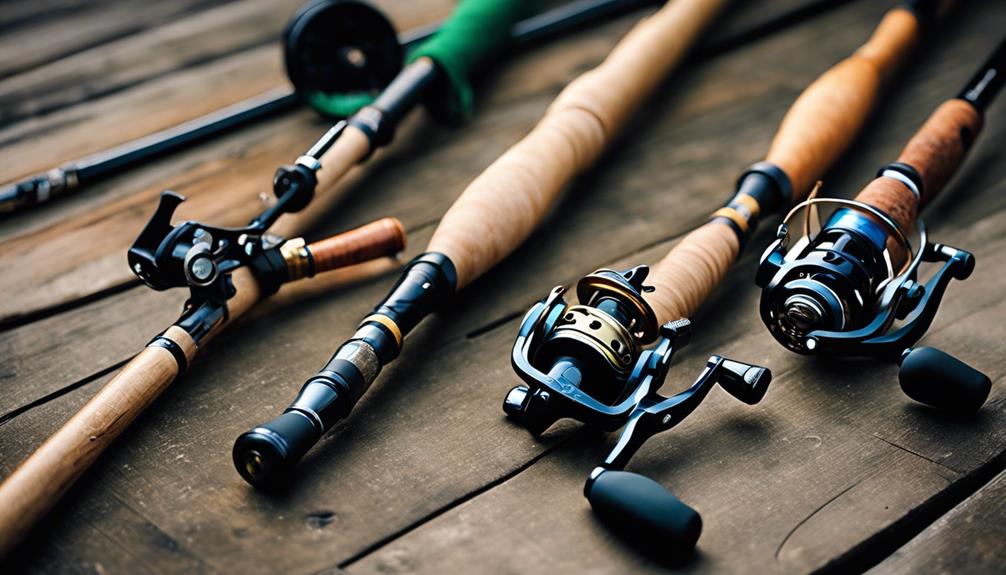Fishing is an age-old activity that has captivated humans for centuries. From ancient civilizations relying on it for sustenance to modern enthusiasts seeking leisure, fishing remains a popular pastime. But why do people fish? In this blog post, we’ll delve into the various motivations that drive individuals to cast their lines into the water, exploring the personal, social, and environmental factors that make fishing a cherished activity.
The Thrill of the Catch: A Natural Adrenaline Rush
One of the most compelling reasons why people fish is the thrill of the catch. The anticipation of a tug on the line can send adrenaline coursing through the veins of even the most seasoned angler. This excitement often leads to a heightened sense of awareness and focus, as anglers immerse themselves in the experience. The unpredictability of fishing—never knowing what you might catch—adds to its allure. Whether it’s the powerful fight of a large fish or the delicate nibble of a smaller one, each fishing trip offers the potential for a unique and exhilarating encounter.
Connecting with Nature: The Great Outdoors Awaits
Fishing provides a unique opportunity to connect with nature. Many anglers cherish the tranquility of being by the water, surrounded by the beauty of the natural world. This connection fosters a sense of peace and relaxation, allowing individuals to escape the hustle and bustle of daily life. The sights and sounds of nature—chirping birds, rustling leaves, and the gentle lapping of water—create a serene backdrop that enhances the fishing experience. For many, spending time outdoors and appreciating the environment is a fundamental reason why they fish.
Building Relationships: A Social Experience
Fishing is often a social activity, bringing together friends and family for shared experiences. Many people fish to bond with loved ones, creating lasting memories and deepening relationships. Whether it’s a father teaching his child the art of casting or friends embarking on a fishing trip together, these shared moments can strengthen connections and foster a sense of community. Additionally, fishing tournaments and clubs offer opportunities to meet new people who share a passion for the sport, further enhancing the social aspect of fishing.
Health Benefits: A Physical and Mental Escape
The health benefits of fishing are another reason why people are drawn to this activity. Engaging in fishing often involves physical activity, whether it’s walking along the shore, hiking to a remote fishing spot, or reeling in a big catch. This physical exertion can contribute to overall wellness, helping individuals stay active and fit. Moreover, fishing can be a form of therapy, providing a mental escape from everyday stressors. The meditative qualities of waiting patiently for a bite can promote mindfulness, reduce anxiety, and improve mental health.
Learning and Skill Development: The Art of Fishing
Fishing is not just about the catch; it’s also an art that requires skill and knowledge. Many people are drawn to fishing because they enjoy the challenge of learning new techniques and honing their abilities. From understanding different fishing methods—such as fly fishing, trolling, or ice fishing—to mastering bait selection and knot tying, the learning process can be both rewarding and fulfilling. This continuous pursuit of knowledge keeps anglers engaged and motivated, making fishing a lifelong hobby for many.
Conservation and Sustainability: A Responsibility to the Environment
Another important aspect of why people fish is the growing awareness of conservation and sustainability. Many anglers take pride in practicing responsible fishing, ensuring that fish populations remain healthy and ecosystems are preserved. Catch-and-release practices, adherence to fishing regulations, and participation in conservation efforts are ways that anglers contribute to the environment. By educating themselves about sustainable fishing practices, they not only enjoy their pastime but also play a role in protecting aquatic habitats for future generations. This sense of responsibility adds a meaningful dimension to their fishing endeavors.
Tradition and Heritage: Honoring the Past
For many individuals, fishing is deeply rooted in tradition and heritage. It may be a family pastime passed down through generations, with stories and techniques shared from parent to child. This connection to the past adds a layer of significance to the activity, as anglers honor the legacy of those who came before them. Fishing can also be tied to cultural rituals and practices, making it an essential part of community identity. By participating in fishing, individuals not only engage in a beloved activity but also celebrate their heritage and the values associated with it.
The Joy of Food: Fishing for a Fresh Catch
Finally, one of the most practical reasons why people fish is the desire for fresh food. Many anglers enjoy the satisfaction of catching their own meals, which can be both rewarding and delicious. The experience of preparing and cooking a freshly caught fish offers a unique culinary adventure that few other activities can provide. Additionally, fishing often fosters a greater appreciation for food and sustainability, as individuals become more aware of where their meals come from. This connection to food, coupled with the thrill of the catch, makes fishing an appealing choice for many.
In conclusion, the reasons why people fish are as diverse as the myriad fishing spots around the world. Whether it’s the thrill of the catch, the connection with nature, the social bonds formed, or the health benefits gained, fishing offers something for everyone. As we’ve explored, it’s not just a hobby; it’s a multifaceted activity that encompasses tradition, skill, responsibility, and joy. So, the next time you see someone casting their line, remember that they are likely drawn by a unique blend of motivations that make fishing a timeless and cherished pursuit.
